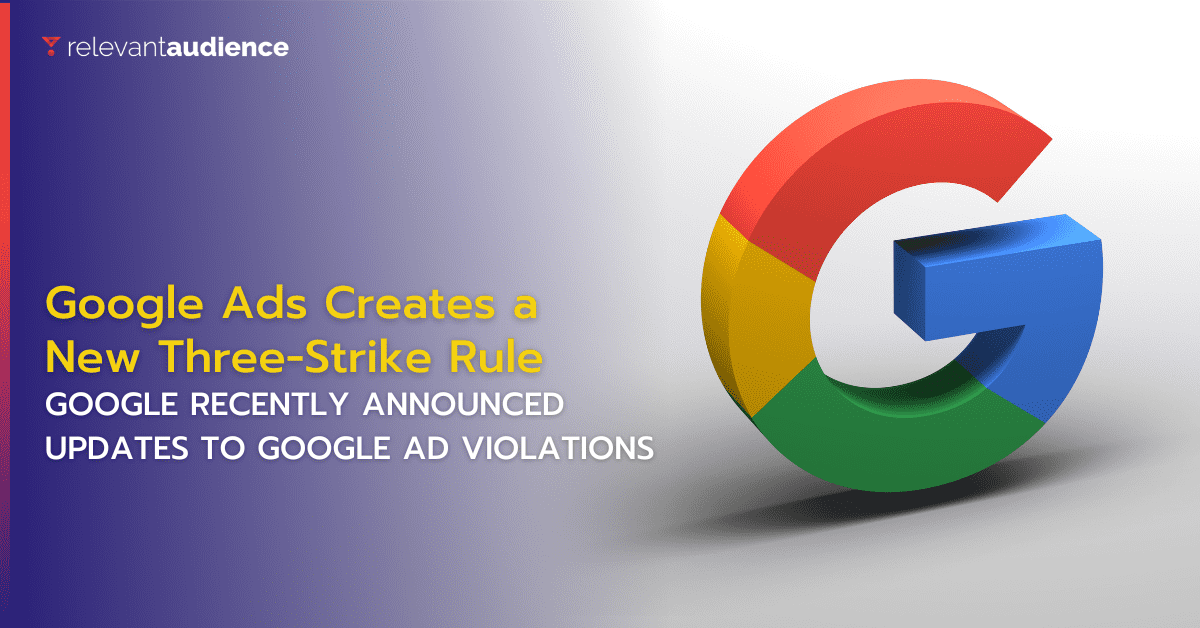How to prepare for Google’s three-strike ad policy system
Google aims to protect users by removing abusive advertising activities. As part of its wider goal, Google has updated some of its policies for companies and publishers, including initiating a new three-strikes policy to address matters such as dishonest practices, inappropriate content, and harmful products. Repeat advertising violators will receive penalties, and the third strike will lead to the account being suspended.
Advertisers should be aware that strikes are not issued for every policy violation. The related policies that will fall under the strike system at this time are:
- Compensated sexual acts
- Mail-order brides
- Clickbait
- Misleading ad design
- Bail bond services
- Call Directories, forwarding services
- Credit repair services
- Binary options
- Personal loans
It should be noted that these types of Google Ads have already been forbidden for some time; however, Google is now taking measures to implement a stricter policy for advertising offenders.
How the strike process will work
When Google dispenses a strike, advertisers will be sent an email notifying them that the related ads are in violation of Google’s ad policies. If you receive a first and second strike, you must address the violations and then submit an acknowledgment form to Google to continue with your ad campaign. Strikes may be appealed if the advertiser believes it was issued in error.
Strikes will expire following a 90-day period, and if you do not commit any further violations during this time, your account will go back to normal, and you can continue advertising. However, if you do not address the violation and are then issued with a third strike, your ad account will be suspended.
Here are the different levels of strikes to be aware of:
Warning: This is the first instance of an ad content violating Google’s “Enabling Dishonest Behavior, Unapproved Substances and Dangerous Products or Services” policies. The relevant ads will be removed, and that is all.
First strike: This is when there is a violation of the same policy that you have already received a warning of within the 90-day period. The ad account will be placed on temporary hold for three days, and during this time, ads will not be eligible to run.
Second strike: If an ad account has violated the same policy that they have received a first strike within a 90-day period, the advertiser will receive a second strike. In this case, the ad account will be put on hold temporarily for seven days, and they will not be able to run the ads during this time. The second strike is the final notice for the advertiser to fix the issues and prevent their account from being suspended.
Third strike: A third strike is issued when there has been a violation of the same policy for which the advertiser received a second strike within the 90-day period. This leads to the account being suspended for a repeat violation of Google’s policies.
Suspended accounts can no longer run any ads or create new ad content. Advertisers are still able to access their suspended accounts and any reports connected to them.
Accounts that are connected to the suspended account (for example, accounts that use the same email or payment method or accounts linked to the same manager account) may also be suspended.
Merchant Center accounts that are linked to the suspended Google Ads accounts may also be suspended.
If the advertiser attempts to set up a new ad account, this may also be suspended.
If your account is set up to receive email notifications from Google Ads, and your email address is listed on the specific ad account. In that case, you will receive email notifications with details about the violation or suspension.
If you are logged into the account, you will also see a notification in the dashboard with information about the warnings and strikes.
Conclusion
Account violations often occur unintentionally, and the consequences can be severe, especially now with the three strikes and you’re out rule. You will most likely not be subject to account violations for ad accounts that do not breach any of the above categories. However, it can happen. Therefore, it is always good practice to regularly keep an eye on your account notifications.
If you view any account violation notifications, be sure to take swift action. This means reviewing, revising, or appealing the violations in question in order for your account to remain in good standing.
If you have any questions related to Google Ads and how to keep up with Google changes, please feel free to contact our expert team at info@relevantaudience.com for more information




